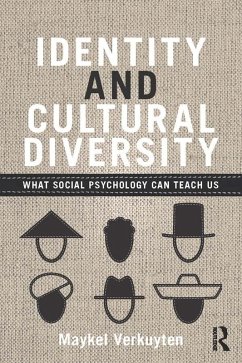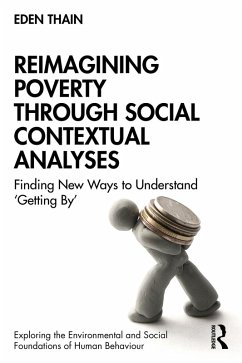
Social Constructionism (eBook, ePUB)
Versandkostenfrei!
Sofort per Download lieferbar
38,95 €
inkl. MwSt.
Weitere Ausgaben:

PAYBACK Punkte
19 °P sammeln!
The fourth edition of this seminal work introduces students to social constructionism. Using a variety of examples from everyday experience and from existing research in areas such as personality, sexuality and health, it clearly explains the basic theoretical assumptions of social constructionism.Drawing on a range of empirical studies, the book clearly defines the various approaches to social constructionist theory and research and explores the theoretical and practical issues they raise. It presents and analyses key debates, such as the nature and status of knowledge, truth, reality, and th...
The fourth edition of this seminal work introduces students to social constructionism. Using a variety of examples from everyday experience and from existing research in areas such as personality, sexuality and health, it clearly explains the basic theoretical assumptions of social constructionism.
Drawing on a range of empirical studies, the book clearly defines the various approaches to social constructionist theory and research and explores the theoretical and practical issues they raise. It presents and analyses key debates, such as the nature and status of knowledge, truth, reality, and the self, in an accessible style. The new edition has been updated with relevant and contemporary references to aid understanding of key theoretical and methodological issues. The author additionally utilises new illustrative examples from research and contemporary life, such as the #MeToo movement, BlackLivesMatter, and Post-Truth politics. The updated work has also been expanded to include an extended discussion of affect and embodiment and a number of exercises to help illustrate important concepts.
Social Constructionism extends and updates the material covered in previous editions and will be an invaluable and informative resource for undergraduate and postgraduate students of Psychology, Sociology, Education, and other related disciplines.
Drawing on a range of empirical studies, the book clearly defines the various approaches to social constructionist theory and research and explores the theoretical and practical issues they raise. It presents and analyses key debates, such as the nature and status of knowledge, truth, reality, and the self, in an accessible style. The new edition has been updated with relevant and contemporary references to aid understanding of key theoretical and methodological issues. The author additionally utilises new illustrative examples from research and contemporary life, such as the #MeToo movement, BlackLivesMatter, and Post-Truth politics. The updated work has also been expanded to include an extended discussion of affect and embodiment and a number of exercises to help illustrate important concepts.
Social Constructionism extends and updates the material covered in previous editions and will be an invaluable and informative resource for undergraduate and postgraduate students of Psychology, Sociology, Education, and other related disciplines.
Dieser Download kann aus rechtlichen Gründen nur mit Rechnungsadresse in A, B, BG, CY, CZ, D, DK, EW, E, FIN, F, GR, HR, H, IRL, I, LT, L, LR, M, NL, PL, P, R, S, SLO, SK ausgeliefert werden.













